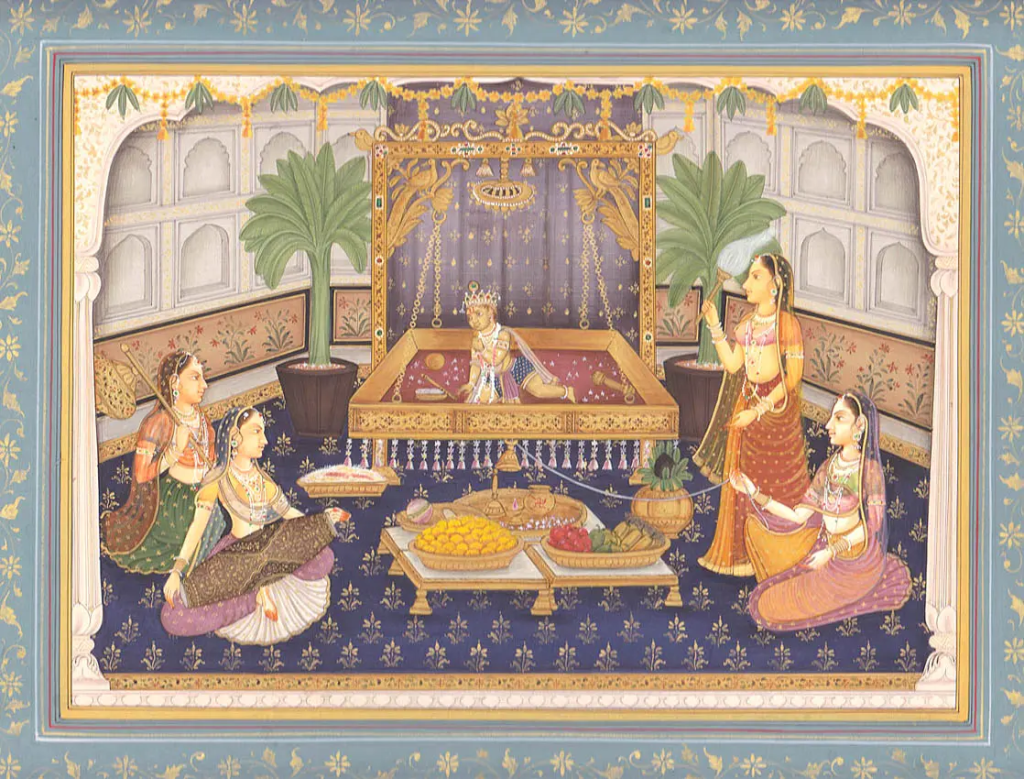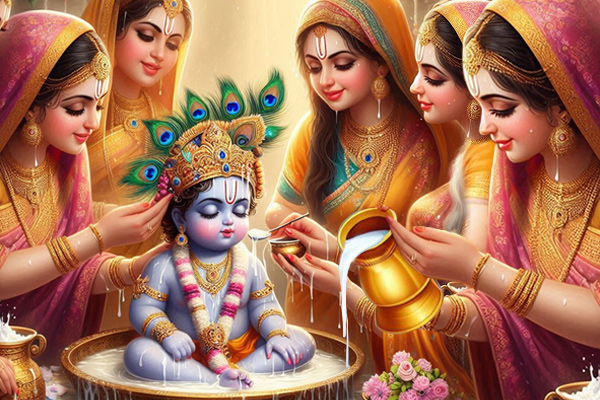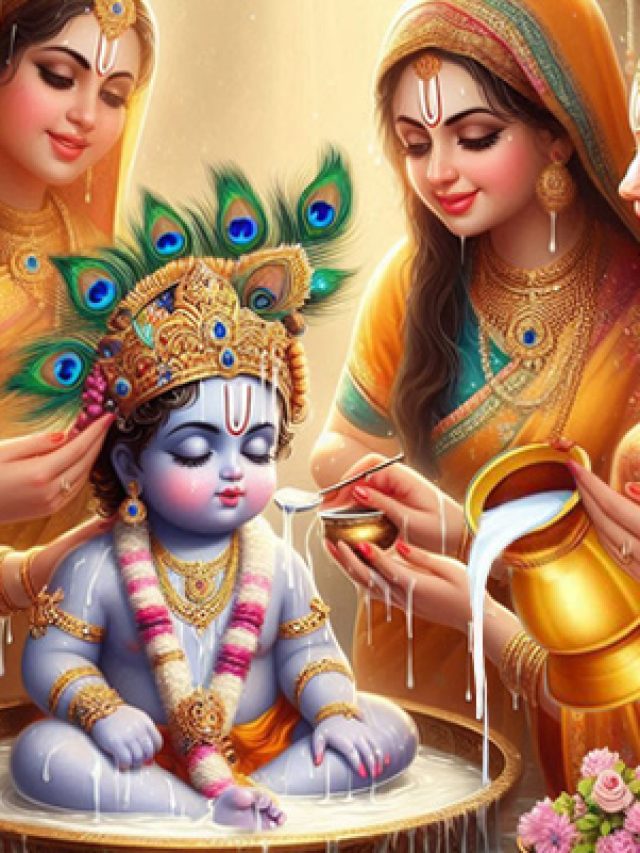Krishna Janmashtami: History, Significance, and Celebration Ideas
One of the revered festivals in Hinduism, Krishna Janmashtami is celebrated with great piety across India and abroad. It celebrates the birth of Lord Krishna, who is revered as an incarnation of Lord Vishnu, regarded in many texts to be the supreme god in Hinduism. Know the meaning of this auspicious day along with how to celebrate Janmashtami.
History of Krishna Janmashtami
The historical background of Janmashtami goes back innumerable years to the old sacred texts and stories of Hinduism. Legend has it that Lord Krishna was born 5,000 years ago in the Dwapara Yuga in Mathura to Devaki and Vasudeva. Krishna was born on the eighth day (Ashtami) of the Krishna Paksha (dark fortnight) in the month of Shravana according to Hindu calendar.

The birth of Krishna was a divine scheme to get rid of evil, especially the tyranny by his maternal uncle, King Kansa. The tale of Krishna’s birth and childhood, which he spent in Gokul performing several divine acts are a major premise on Janmashtami.
Why is Janmashtami Celebrated?
Janmashtami is celebrated all over the country to commemorate the birth of Lord Krishna, who is known for his immense love, compassion and justice. A time to reflection is present in the festival where people remember lessons taught by Krishna, specially from Bhagavad Gita where he teaches about life and duty and also gives the knowledge on spirituality-infused guidelines. Janmashtami also observes as a victory of goodness over the bad; fighting against evil Kansa. It is a glorious day to remember Krishna’s mischievous nature, his unyielding faithfulness to his devotees and as the protector of Dharma (righteousness).
How Do You Celebrate Janmashtami?
Krishna Janmashtami is celebrated in temples and at home with great devotion. The revelry usually starts with a fast, which many devotees observe until midnight, when Krishna is said to have been born. This fast is broken after the offering prasad (sacred food ) to the deity.
People decorate their at home prayer rooms or temples with flowers, lights and Gokulashtami rangoli.. The devotees put the idols of baby Krishna in the cradle and with great enthusiasm, they celebrate his birth. You can also hear devotional songs (bhajans) and Krishna’s tales from the Bhagavad Gita and other scriptures here.
Temples conduct special pujas, kirtans and dramatic enactments of Krishna’s life- the Rasleela. The Dahi Handi festival, a major draw to the city of Mumbai and the state of Maharashtra, involves teams of young men making human pyramids to smash a pot filled with curd — mimicking Krishna’s supposed antics as a baby who stole butter from his mother.
Krishna Janmashtami Celebration Ideas at Home
Home Temple Decor: Make a beautiful altar, decorate it with fresh flowers and create a beautiful Gokulashtami rangoli in your home. Now place the baby Krishna idol or picture in a cradle and decorate with garlands.

Cook Festive Dishes: Prepare traditional dishes like panjiri, butter, and sweets like laddus, which are believed to be Krishna’s favorites. Offer these as prasad after the midnight puja.
Hold A Bhajan Session: Invite family and friends for a night of Krishna bhajans; You can also tell or read stories of Krishna’s divine leelas (exploits) from the pages of Bhagavad Gita etc.
Organize a Dahi Handi: Amongst your closed circle and with enough people around, set-up an entire scene at home where you recreate the event of the Dahi handi. It can also be a good activity for children to get involved in the celebrations.

Crafts For Kids: get kids in the act to make stuff like paper flutes, crowns or butter pots which can be decorations.
Gokulashtami Wishes
This pious day share your warm Gokulashtami wishes with everyone around you sharing the peace, success and blessings of Lord Krishna. Like — May Lord Krishna shower his blessings on you, happiness and prosperity be with you on this Janmashtami. Happy Gokulashtami!” have the vibe of the festival in their hearts.
Conclusion
Krishna Janmashtami is more than just a festival; it’s a celebration of divine love, righteousness, and the eternal bond between the devotee and the deity. By understanding its history and significance and engaging in meaningful celebrations, you can truly experience the joy and spiritual fulfillment that this auspicious day brings.






